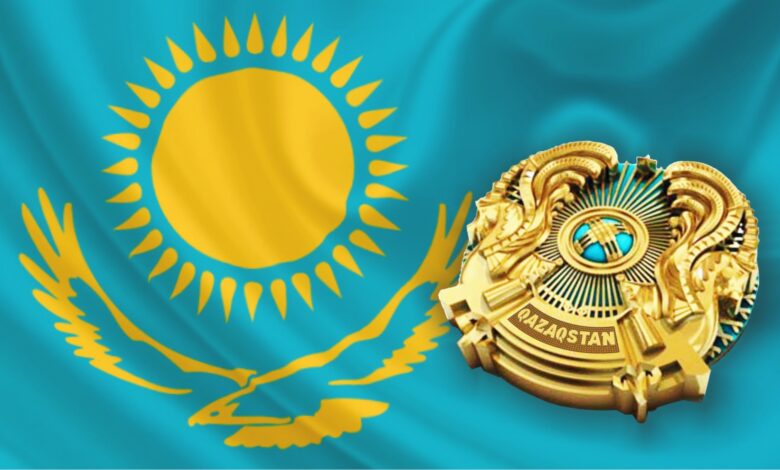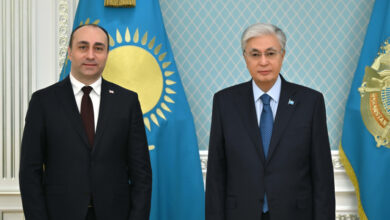Kazakhstan Celebrates State Symbols Day
Today, Kazakhstan commemorates State Symbols Day, honoring the national flag, emblem, and anthem. These symbols hold profound significance, representing the country's unity, independence, and core values.

The day coincides with the anniversary of the adoption of these symbols in 1992. The national flag, designed by Shaken Niyazbekov, features a sky-blue background symbolizing peace and tranquility. A golden eagle, a universal emblem of strength and sovereignty, soars proudly on the flag.
Kazakhstan’s national identity is deeply intertwined with its state symbols – the flag, emblem, and anthem. Each element carries profound symbolic meaning, offering a glimpse into the nation’s aspirations and core values.
The national flag, designed by Shaken Niyazbekov in 1992, takes center stage. Its sky-blue background evokes peace, prosperity, and national unity. A majestic golden eagle, a universal symbol of strength and sovereignty, soars proudly on the flag.
Adopted alongside the flag in 1992, the national emblem is no less significant. Architects Shot-Aman Ualikhanov and Zhandarbek Malibekov crafted this emblem, weaving together threads of Kazakhstan’s rich history and customs. The central Shanyrak, the vaulted dome of a traditional yurt, symbolizes the sun, eternal life, and national unity. Golden horses flank the Shanyrak, representing hard work and prosperity (grounded horse) and bravery/swiftness (winged horse). A five-pointed star represents collaboration, while the gold color signifies prosperity, justice, and kindness. The sky blue background, paired with gold, evokes a vision of a peaceful and prosperous nation.
Kazakhstan’s national anthem, officially adopted in 2006, completes the picture. The music, composed by Shamshi Kaldayakov, and lyrics by Zhumeken Nazhimedenov, are based on the beloved patriotic song “Menin Kazakstanym.”
This revised version condenses the information into a news format, highlighting the key points about each symbol and their significance for Kazakhstan’s national identity.



